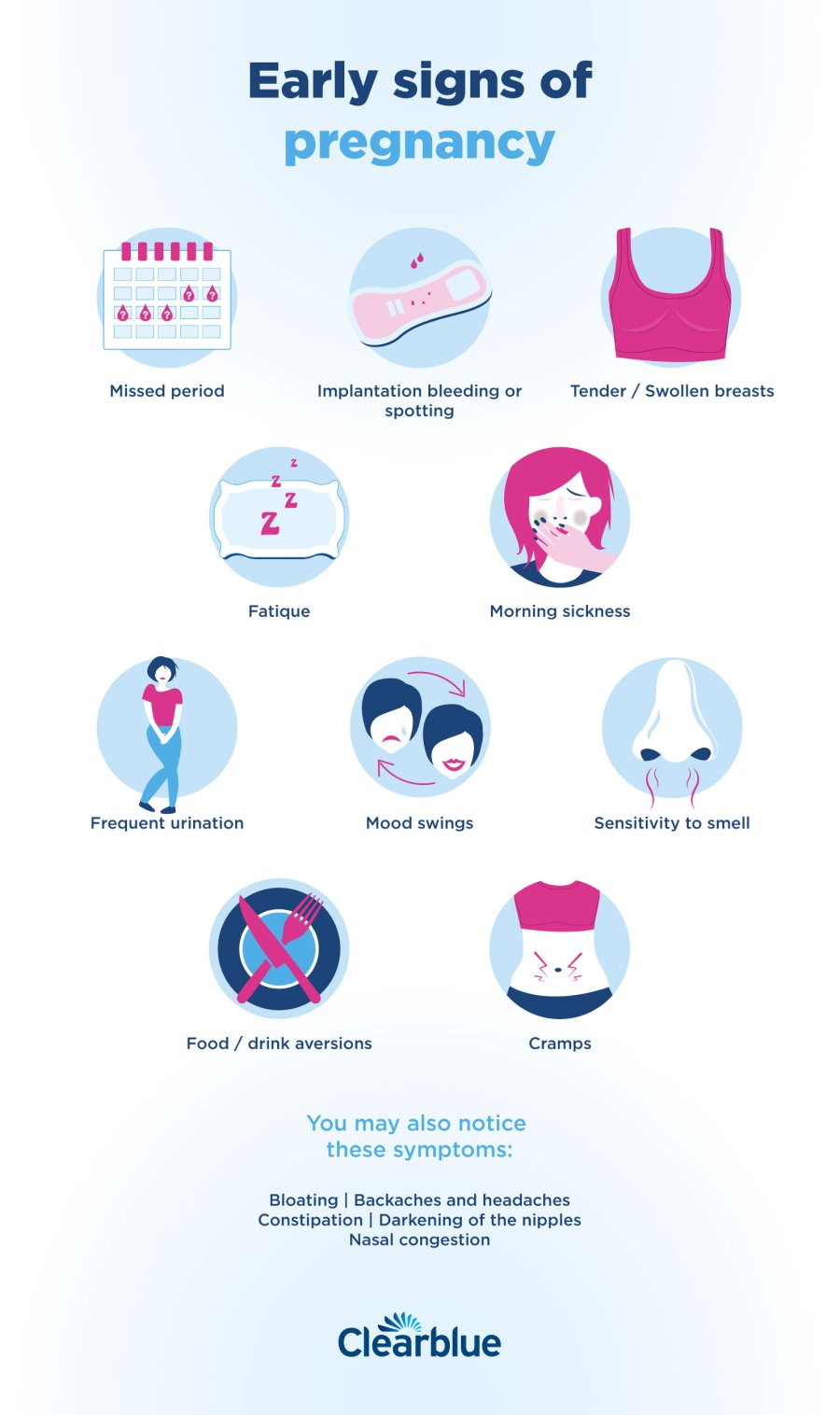
Pregnancy Symptoms in the First Couple of Weeks
Pregnancy is a beautiful and transformative journey, but it can also be accompanied by a range of symptoms, especially in the early weeks. While every woman’s experience is unique, there are certain common signs that may indicate you are pregnant. Understanding these symptoms can help you make informed decisions about your health and prepare for the exciting road ahead.
Missed Period
One of the most obvious signs of pregnancy is a missed period. If you are regularly menstruating and suddenly miss a period, it could be a strong indication that you are pregnant. However, it is important to note that missed periods can also be caused by other factors, such as stress, hormonal imbalances, or certain medications.
Breast Tenderness and Enlargement
Hormonal changes during pregnancy can cause your breasts to become tender, swollen, and heavier. You may also notice a darkening of the areolas and the appearance of small bumps known as Montgomery’s tubercles. These changes are typically more pronounced in the first trimester.
Nausea and Vomiting
Commonly known as morning sickness, nausea and vomiting are experienced by many pregnant women, especially in the early weeks. These symptoms can occur at any time of the day or night and may be triggered by certain smells, foods, or even the thought of eating.
Fatigue
Extreme fatigue is a common symptom in the first trimester. The hormonal changes and increased blood production can make you feel exhausted and in need of more sleep than usual. This fatigue can be particularly challenging to manage during the early weeks when you may be trying to keep your pregnancy a secret.
Frequent Urination
As your body produces more blood and fluids during pregnancy, you may find yourself needing to urinate more frequently. This is especially true in the first trimester when your uterus is expanding and putting pressure on your bladder.
Implantation Bleeding
Some women experience light spotting or bleeding around the time of implantation, which occurs about 6-12 days after fertilization. This bleeding is typically lighter than a menstrual period and may last for a few days.
Mood Swings
Hormonal fluctuations during pregnancy can also lead to mood swings. You may experience feelings of happiness, excitement, sadness, or irritability, often within a short period of time. These mood swings are typically more pronounced in the first trimester.
Other Early Pregnancy Symptoms
In addition to the common symptoms mentioned above, some women may also experience:
- Bloating
- Constipation
- Food cravings or aversions
- Metallic taste in the mouth
- Headaches
- Dizziness
- Lower back pain
When to See a Doctor
If you suspect you may be pregnant, it is important to schedule an appointment with your doctor to confirm your pregnancy and discuss your symptoms. Your doctor will perform a physical exam, review your medical history, and may order blood or urine tests to confirm your pregnancy.
Early prenatal care is essential for monitoring your health and the development of your baby. Your doctor can provide guidance on nutrition, exercise, and other important aspects of pregnancy.
Managing Early Pregnancy Symptoms
While some early pregnancy symptoms can be uncomfortable or challenging, there are ways to manage them:
- Missed period: Use over-the-counter pain relievers, such as ibuprofen or acetaminophen, to relieve breast tenderness.
- Nausea and vomiting: Eat small, frequent meals to avoid an empty stomach. Try bland foods like crackers or toast, and avoid foods that trigger your nausea.
- Fatigue: Get plenty of rest and listen to your body. Take naps when you need them and avoid overexerting yourself.
- Frequent urination: Drink plenty of fluids, but avoid caffeine and alcohol, which can worsen the need to urinate.
- Mood swings: Talk to your partner, friends, or family about your feelings. Exercise or meditation can also help improve your mood.
Conclusion
The first couple of weeks of pregnancy can be an exciting and transformative time, but it can also be accompanied by a range of symptoms. Understanding these symptoms can help you make informed decisions about your health and prepare for the journey ahead. If you suspect you may be pregnant, it is important to schedule an appointment with your doctor to confirm your pregnancy and discuss your symptoms. Early prenatal care is essential for monitoring your health and the development of your baby.